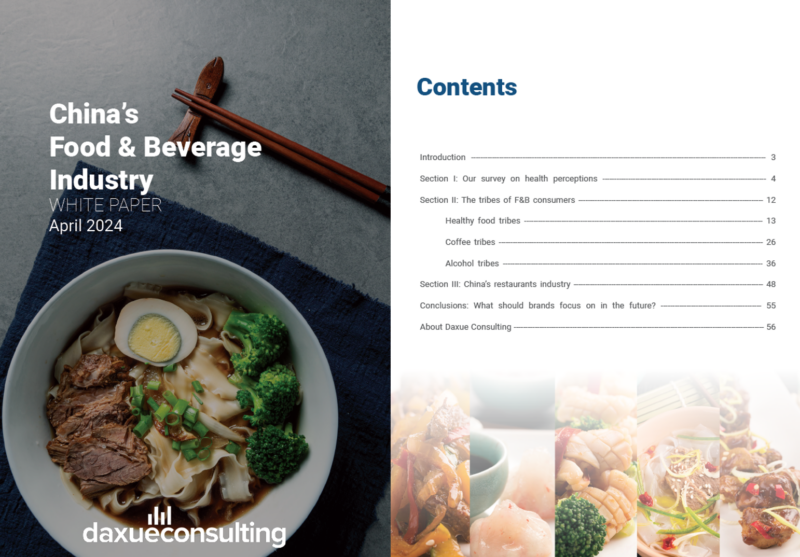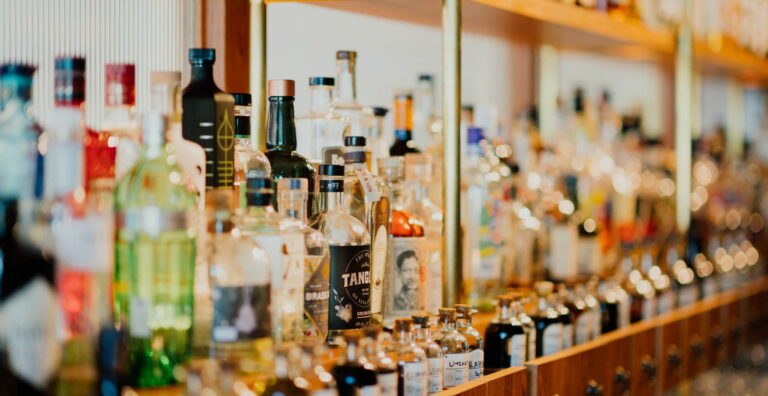In early August 2021, Chinese e-commerce giant Alibaba was embroiled in a sexual assault scandal involving one of its female employees, Wang, and her manager, Zhang. Following the incident being made public, it sparked criticism within the Chinese online community and state media. Alibaba has since fired Zhang, who is now under arrest on suspicion of assaulting the woman. Meanwhile, two other executives have also resigned due to their failure to take timely and appropriate action after the incident. Alibaba’s stock price crashed by near to 3% on the 9th of August.
Download our China F&B White Paper

Alibaba’s sexual assault case has led to a heavy backlash against China’s workplace drinking culture. The Central Commission for Discipline Inspection, the Chinese Communist party’s anti-corruption watchdog, has warned that pressure to drink could lead to crimes and ‘correct values’ should replace such practices. In a statement issued on August 10th, the CCDI pledged to strengthen oversight of Chinese companies to tackle toxic work cultures where employees face pressure to drink. The CCDI’s comment has shaken stock prices of alcohol companies. Kweichow Moutai, the world’s largest liquor producer, fell 10% in the week following the issued statement. Similarly, Kweichow Moutai competitor Wuliangye has fallen nearly 8% in share price.

China’s workplace drinking culture
There is an old Chinese saying in China: ‘No feast without wine’ (无酒不成宴). Alcohol is the glue that tightens interpersonal relationships and brings people closer together. The drinking culture in China is pervasive in daily life. Unlike the West’s freestyle way of drinking for leisure, drinking in China is more purposeful and controlled. Drinking alcohol together is common to secure business deals. Similarly, social gatherings and dinners among colleagues and superiors are often accompanied by rounds of drinks.
It is hard to go against such a pervasive drinking culture. Many companies even directly regard drinking as a necessary condition when interviewing employees, and some companies use alcohol as a way of testing the loyalty of their staff. Refusing to drink may result in a loss of promotion opportunity, and outright rejecting a toast from one’s boss may be a sign of disrespect. For example, the story of a Xiamen bank new hire being slapped by his boss due to declining a toast with another superior received global attention last summer.

China’s alcohol market
There are around 450 million alcohol consumers in China. China’s alcohol market reached 830.57 billion yuan with white spirits (Chinese baijiu) remaining as the winning champion occupying 68% of the market share. Further, many white spirit consumers typically buy branded liquor not for their own needs, but for business banquets and gifts. They will tend to choose high-end Chinese baijiu for business events compared to a preference for mid-end liquor for social leisure with friends. A questionnaire consisting of 1000 participants, showed that 70.4% of consumers drink Chinese baijiu for social entertainment, 48.8% for relieving stress and anxiety, and 48% to enjoy the pleasure of tasting.
Shedding light on toxic workplace drinking culture’s potential impact on the future for China’s alcohol market
Beijing has yet to set in stone any regulations regarding a clampdown on Chinese workplace drinking culture. Ng Jun Ying, a food and beverage analyst at Fitch Solutions, told Financial Times, “in the short run, alcohol sales will likely spike as Chinese consumers hoard booze in anticipation of any crackdown”. Thomas Gatley, a Beijing-based analyst at Gavekal Dragonomics, claims that “the intensity and tone” of the crackdown would ease, and suggested to signals of harmonization between regulators to “provide a more stable and predictable policy environment for firms and investors”.
Further announcements from Beijing on condemning workplace drinking culture may appear in the future but is unlikely to be strictly enforced in the aftermath. Even with the main spotlight thrown onto Alibaba due to the sexual assault scandal, no clear definitive action happened within the firm. In an internal announcement, Alibaba stated that they would take ‘a clear-cut stand against the ugly alcohol-accompanying culture, regardless of gender, and unconditionally supports employees to refuse to accompany with alcohol’. However, without concrete policies and rules in place, relying on the personal behaviour of employees as a main fighting force against such toxic culture has low probability of successful revolution.
Young workers opting out of pressuring each other to drink
In the past two years, Chinese social media platform Weibo has spawned several hot topics regarding China’s alcohol culture such as “alcohol table culture is frustrating” and “what’s up with alcohol table culture”. Among the many topics, “what fun is alcohol table culture” is the most critical topic, with nearly 490 million read hits and generating 53,000 online discussions.
In a survey by China News Weekly consisting of approximately 700,000 voters, more than 80% of young voters declared that they were extremely disgusted and unable to accept’ China’s ‘alcohol bureau culture’. A Chinese netizen stated, “I think that if the post-90s have any historical mission, it is to terminate the alcohol bureau culture”. However, it is not clear whether significant action among the youth will revolutionize China’s workplace drinking culture.





